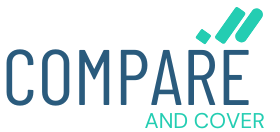If you’re a young adult or a working professional in the U.S., health insurance might not be the first thing on your mind. Maybe you feel healthy, rarely visit the doctor, or you’re on a tight budget. It’s easy to underestimate how important having the right health insurance really is.
But here’s the truth: health insurance is one of the smartest investments you can make—not just for your body but for your wallet too. Unexpected medical expenses can hit hard and fast, and without insurance, a sudden illness or accident could leave you with massive bills.
In this article, we’ll break down why health insurance matters for young adults and working professionals, explore your coverage options, and give you practical tips for choosing the right plan that fits your lifestyle and budget.
Why Young Adults Really Need Health Insurance
It’s common for young people to feel invincible. You might think, “I’m healthy, so why do I need insurance?” But health insurance isn’t just about covering major illnesses—it’s about staying healthy and protecting yourself from unexpected costs.
Here’s why health insurance matters even if you’re feeling great:
1. Affordable Preventive Care
Health insurance makes it easier and cheaper to get routine care like:
-
Annual physical exams
-
Vaccinations (like flu shots and COVID-19 boosters)
-
Health screenings for cholesterol, blood pressure, or diabetes risk
Many insurance plans cover these preventive services at no extra cost to you. Catching health issues early can prevent bigger problems later—and save you money.
2. Coverage for Emergencies and Illnesses
Life is unpredictable. Even healthy people can get into accidents, catch a serious illness, or face sudden health problems.
Without insurance, hospital stays, emergency room visits, surgeries, and prescription medications can cost thousands or even tens of thousands of dollars. Health insurance helps cover these expenses, so you’re not left paying the full amount yourself.
3. Mental Health Benefits
More young adults today recognize the importance of mental health. Health insurance plans increasingly include coverage for counseling, therapy, and treatment for conditions like anxiety and depression.
Having insurance means you can access these vital services without breaking the bank.
4. Financial Security and Peace of Mind
Medical debt is one of the leading causes of personal bankruptcy in the U.S. Having health insurance protects you from crippling bills if something unexpected happens.
Knowing you’re covered gives you peace of mind to focus on your work, studies, or personal life—without worrying about potential medical costs.

Health Insurance Options for Working Professionals
Now that you understand why health insurance is important, let’s explore your options. Depending on your job, income, and personal situation, you might qualify for different types of plans.
Employer-Sponsored Health Insurance
If you work for a company with more than a handful of employees, chances are your employer offers a group health insurance plan.
These plans often have:
-
Lower monthly premiums because employers cover part of the cost
-
A range of coverage options, including medical, dental, and vision
-
Access to negotiated rates with healthcare providers
Employer-sponsored insurance is usually one of the most affordable and comprehensive ways to get coverage. Plus, premiums are often deducted directly from your paycheck, making payments easy and automatic.
Marketplace Plans Under the Affordable Care Act (ACA)
If your employer doesn’t offer insurance or you’re self-employed, the ACA marketplace (HealthCare.gov or your state’s exchange) lets you shop for plans.
The good news: Many young adults qualify for subsidies or tax credits based on their income, which can make coverage more affordable.
Marketplace plans are categorized by metal levels—Bronze, Silver, Gold, and Platinum—which indicate how costs are shared between you and your insurer. Bronze plans have lower monthly premiums but higher out-of-pocket costs, while Platinum plans cost more each month but cover more services.
Catastrophic Health Insurance Plans
If you’re young, generally healthy, and want to keep your premiums very low, a catastrophic plan might be an option.
These plans provide coverage for worst-case scenarios like serious accidents or illnesses but don’t cover routine medical care except for a few preventive services.
Keep in mind that catastrophic plans have very high deductibles, so they’re not ideal if you need frequent medical care.
Medicaid
Medicaid is a state and federally funded program that provides free or low-cost health coverage to people with limited income.
Eligibility rules vary by state, but many young adults, especially those with lower incomes, qualify for Medicaid. It’s worth checking if you’re eligible because Medicaid often provides very comprehensive benefits.
Short-Term Health Insurance Plans
Short-term plans offer temporary coverage for gaps in insurance—for example, if you’re between jobs or waiting for other coverage to start.
These plans typically have lower premiums but also limited benefits and may not cover pre-existing conditions or essential health services.
Use short-term insurance cautiously—it’s not a substitute for full health coverage.

Tips for Choosing the Right Health Insurance Plan
Picking the right plan can feel overwhelming, but focusing on your personal needs and budget helps narrow the choices.
Here are some things to consider:
1. Evaluate Your Health Needs and Budget
-
How often do you visit the doctor?
-
Do you take regular medications?
-
Do you have any chronic conditions?
-
How much can you afford to pay monthly (premium) and when you need care (deductible, copayments)?
2. Check Which Hospitals and Providers Are In-Network
Insurance plans have networks of doctors and hospitals that have agreed to provide services at discounted rates.
Make sure your preferred doctors and nearby hospitals are in-network to avoid higher costs.
3. Compare Premiums, Deductibles, and Out-of-Pocket Maximums
-
Premium: What you pay monthly for coverage
-
Deductible: What you pay out-of-pocket before insurance starts paying
-
Out-of-pocket maximum: The most you’ll pay in a year before insurance covers 100%
Balance these costs based on your budget and anticipated healthcare needs.
4. Look for Good Preventive and Mental Health Coverage
Check if the plan covers annual checkups, vaccines, screenings, and mental health services without extra cost.
5. Understand Additional Benefits Like Telehealth and Wellness Programs
Many plans now offer virtual doctor visits, wellness coaching, discounts on gym memberships, and more. These extras can be valuable and convenient.

Final Thoughts: Start Early and Stay Protected
Health insurance is more than just a monthly bill—it’s an essential tool to keep you healthy, protect your finances, and provide peace of mind.
For young adults and working professionals, starting health coverage early sets a strong foundation for lifelong wellness.
If you’re currently uninsured or want to update your plan, take the time to research your options carefully. Reach out to insurance agents or use online tools to compare plans and find what fits your unique needs.
Remember, the right health insurance doesn’t just help when you’re sick or injured—it supports your everyday health and wellbeing.





